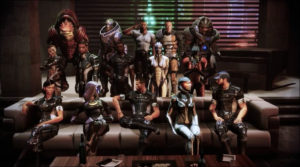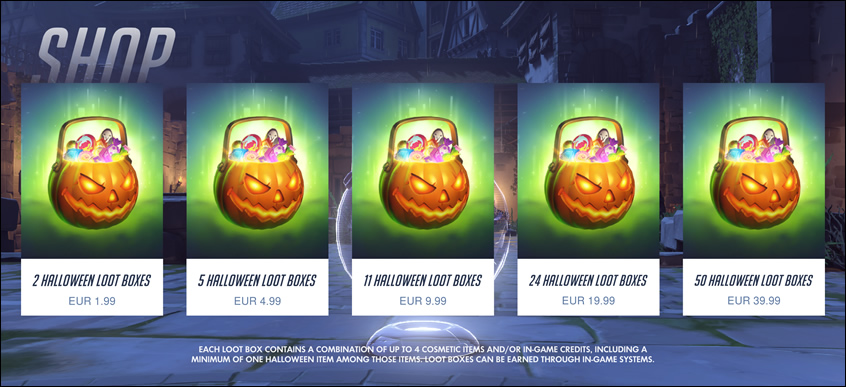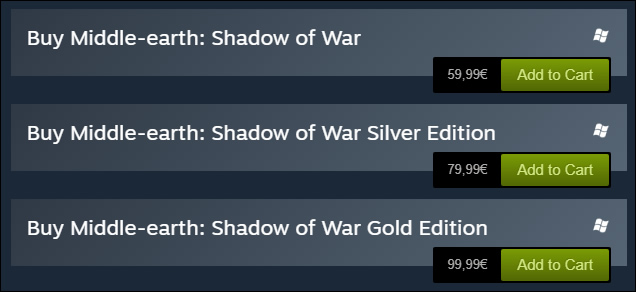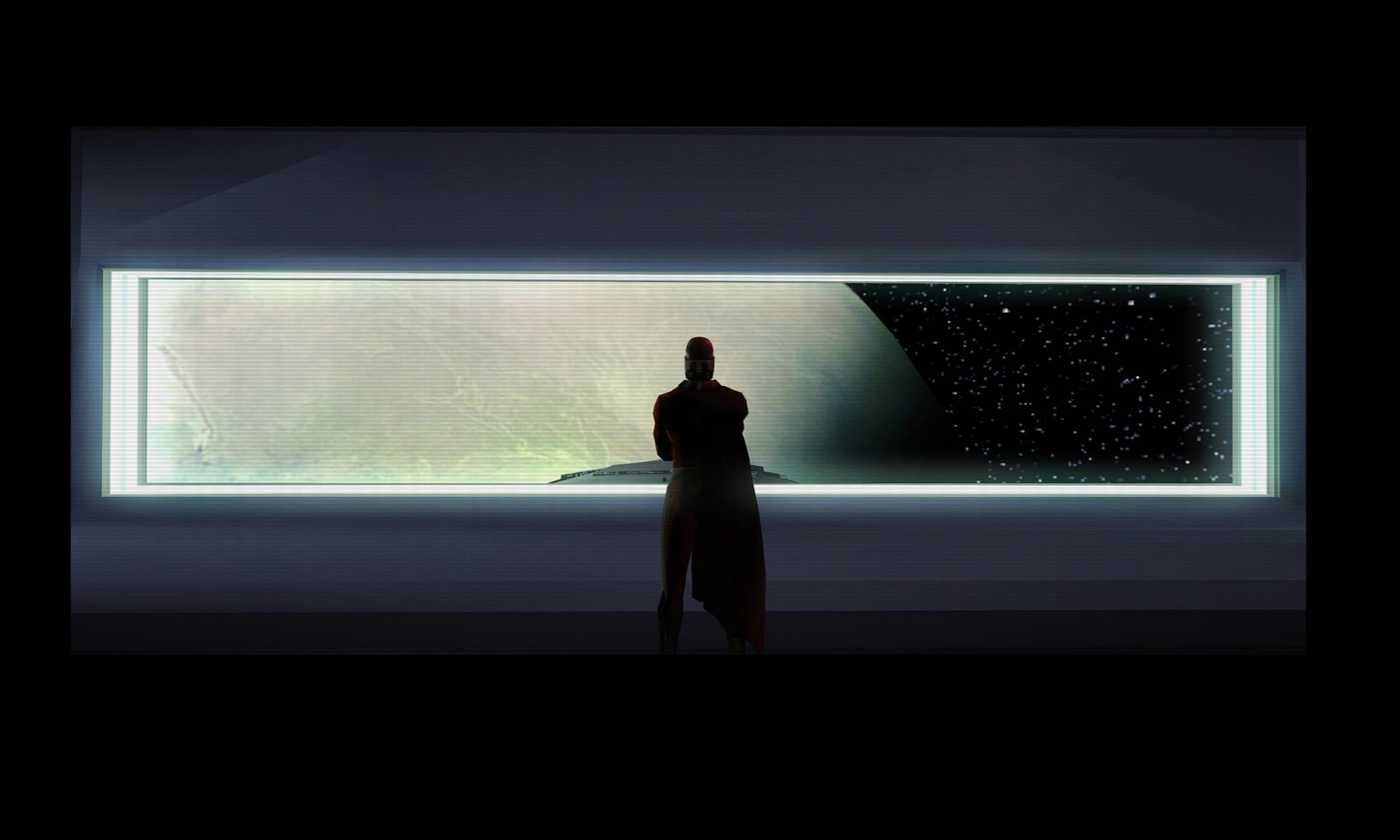Playing video games these days can be frustrating. I’m not talking about difficulty here, but rather what we see more often than not even before we get to see the game itself. “Thank you for buying our product, how about you spend more money?” is something you’ll never read in these exact words but it is essentially what we get today. The concept of selling additional content or features is by no means new, but over the last few years, we’ve seen many different trends. Here’s some Industry Talk…
Pre-Order Now!
I’m sorry to inform you that this article isn’t finished yet. Hey, how about you pre-order it? Objectively, there’s very little to no reason at all to do so, but that doesn’t really bother you now, does it? It’s been here from the start, but now more than ever publishers are trying to get you, potential customers, to pay for a product that hasn’t even been finished at that point. Like many things that eventually spiralled out of control, the idea of pre-ordering a product originates from a sensible concept. As a rule, people would pre-order products of limited quantity. It wasn’t uncommon a few decades ago (and still isn’t today), that people have copies of books reserved by their favourite bookstores, which is, essentially, pre-ordering. Yet, the difference between that and today’s pre-order culture, is that publishers and stores are trying to use as many tricks as they can to get those who wouldn’t normally be interested in pre-ordering in the first place, to do so. They offer story content, character skins, map packs, items, or headstarts. Very often it feels like they’re taking something out of the game, to make it exclusive for those who are willing to spend money for something in advance.
There are many reasons why journalists, or YouTubers like TotalBiscuit and Boogie2988 are heavily advising against pre-ordering. The most obvious one is that you don’t know what you’re paying for. You don’t know whether the game is bad, bugged, unfinished, or maybe even all of the above. I know it’s easy to get hyped about video games, and believe me when I say that I do too. I enjoy watching trailers, seeing developers enthusiastically speak about their next project, and lose my shit when a game is announced for a series that I absolutely love. However, an emotion like that should never be a base on which you decide whether to buy a game or not. We currently live in an age where we are able to use many different sources to obtain a seemingly endless amount of opinions, whether these be in the form of reviews, or in the form of forum posts. It would be careless to only rely on what PR and marketing tell us. So, here’s what you should do: Wait for reviews and check their embargos. Assassin’s Creed: Unity had a post-release review embargo and we all remember how that turned out…

One last thing I’d like to say: Please, don’t get me wrong, as almost always there are exceptions. We still have small, independent developers who, unlike the big guys in the business do need your financial support. They don’t care about getting a big publisher on board, however, they do care about getting you on board. As long as you aware of the risks, please continue to support them on Kickstarter or Steam Early Access. Whilst developers who don’t deserve to get publishers often do, those who need them and deserve to have their games be published are often left behind.
Downloadable Content
Here’s the thing: There generally is nothing wrong with the concept selling additional content. If you played a game and you thoroughly enjoyed it, it’s only natural for you to ask for more. We got that content even before everyone had a broadband internet connection, It just arrived in a different form, under a different label: Expansion packs. Let’s take a journey back to the late 90s and early 2000s: Age of Empires 2: The Conquerors, Starcraft: Brood War, Diablo II: Lord of Destruction, Warcraft 3: The Frozen Throne. Expansion Packs were pretty common back then, but the biggest difference between today’s DLC and those expansions isn’t the way you acquired them or what they were called. Instead, what’s important is that their content was designed to build upon the base game. That way, the pure existence of the additional content didn’t affect your experience of the original. In fact, even if you did know about the expansion it wouldn’t diminish your experience. For instance, see Warcraft 3: Reign of Chaos and its expansion The Frozen Throne. Leaving the expansion aside, the original game still delivers a full, satisfying experience, in both gameplay and story. Keep this in mind and look at Mass Effect 3 and its infamous Day-One DLC. Without going too much into detail, “From Ashes” added arguably vital parts to Mass Effect 3’s story and thus left many fans reasonably angry when it wasn’t included in the main game. Another example would be Dragon Age: Inquisition’s sequel bait ending and the following Trespasser DLC. Taking all of this into account, it’s really no surprise why people are so disappointed in Bioware these days.
Classic expansions did have two major disadvantages. Not only were they expensive but they also completely relied on local retail stores. However, as more and more people got proper broadband internet access, publishers and developers could finally reach their customers directly through the power of the world wide web. That way, they were not only able to sell their games independently, but they were likewise able to sell gamers new downloadable content, more commonly known as DLC. Sadly, gamers and DLC didn’t exactly get off on the right foot. Let’s take a look at one of the more popular early cases. Back in 2006, Bethesda not only released The Elder Scrolls: Oblivion but two weeks after that they also released a piece of DLC called “Horse Armor Pack” which was sold separately for $2.50. To say that some fans weren’t happy about this “offer” would be a bit of an understatement. Here, Bethesda failed on multiple levels.
First of all, the DLC itself is pretty weak. All it does is add purchasable horse armour and a very small quest to your game. Compared to Oblivion itself it felt like it was just there to squeeze a little bit more money out of you, in exchange for something of very little value. After all, it’s not that gamers aren’t willing to pay for content, it’s just that they aren’t willing to pay for overpriced, sloppy, insignificant content. Secondly, it arrived just two weeks after Oblivion’s release which led many people to believe that it was probably already finished by the time the game got out. If it wasn’t they could have just patched it into the game. Most importantly, yes, this DLC was available on the XBox store, but it was also available on the PC, and most people who play video games on their PC know game modifications. Mods, even more than ten years ago, still were able to add an incredible amount of value to a game, sometimes keeping it alive for years. Finally, even though Bethesda did manage to mostly recover from this debacle, Oblivion’s horse armour PR nightmare would become the prime example of how to not do DLC.
On the topic of how to make good DLC, which really isn’t that hard, you have to look no further than Poland. Following the release of Witcher 3, CD Projekt Red released two pieces of DLC: Hearts of Stone, and Blood and Wine. Both DLCs try to do exactly what main game does and most importantly they both keep the high quality in storytelling and plot. They seemingly take all these little things which made Witcher 3 so great and just give you more of that. They even took it to a point where some players would think that the story of Hearts of Stone was so well written that it could have been an entirely separate game. That’s all there is to it. Making good DLC isn’t rocket science. It’s about respecting our players, your fans and those who might become them. The checklist of how to fuck up DLC is actually quite a lot longer than the one of how not to.

Microtransactions
Now, these are a bit different. Microtransactions were originally used in free-to-play multiplayer games to create revenue. Since there’s no initial price for these games, it’s fairly easy for games companies to get people to try their game because there’s no entry barrier. Take Dota 2 or League of Legends for example. The key reason to their giant success is that you don’t need to spend any money to get started. All you need to do is create an account and download their client. Boom, without any real investment you’re instantly able to play their game. What also helps is the fact that both games have a fair monetisation model. Yes, you are able to spend real money in these games, but never to a point where it actively affects the outcome of a match. Word of mouth spreads quickly, and even if these games were still free-to-play, the moment they’d implement a feature which would make them pay-to-win, people would instantly abandon ship. In any event, it’s one thing to get people to give your game a chance, but it’s another to keep it alive.

The reason why they’re called microtransactions is obvious. Most items or services available are relatively low priced. This achieves two things. First, compared to a full-price game, you are more likely to spend real money, because the “cheap” price lowers your resistance to making real-money purchases. Secondly, it also makes you keep coming back to a game, in rare cases it may even evoke a “sunk cost fallacy” kind of feeling. The idea that you already spent so much on a specific game, so you might as well keep p(l)aying. This works particularly well in skill-based games. Basically, the better you get at these games, the lower the chance gets of you switching sides. When you spend hundreds of hours and a considerable amount of money on League, you’re not very likely to turn your back on it and play Dota instead, or vice versa. Combine that with in-game purchases and it’s easy to see why people so rarely switch from one free-to-play game to another.
Singleplayer games are a different story. To put it mildly, I find them insulting. There’s really no point whatsoever in having microtransactions in full-price singleplayer games. They’re simply cheats that you’re supposed to pay for. Paul Tassi, over at Forbes, wrote a brilliant article on this: Microtransactions are the new cheat codes, and he’s right. The only difference is that the new cheat code is your credit card number. If you think these probably won’t affect you, think again. Make no mistake, today’s game mechanics are designed with this in mind. Dead Space did it. Metal Gear Solid did it. Deus Ex did it. Middle-Earth: Shadow of Mordor is doing it right now. The thing is, these are all full-price games, and that just leaves a sour taste in my mouth. Some publishers may not get this, but I have the audacity to not like to have ads pushed in my face moments after I already paid the full price for a singleplayer game.
You’ve Got The Power
The video game market went through an incredible amount of changes during the last few decades. Initially, it was a market heavily focused on storage media, like cartridges and discs. With that came a sense of entitlement. Even though you technically only owned a license and a video game copy, people instead had a general feeling of entirely owning the game instead. While additional content did exist, in the way of expansions packs, customers could rest easy knowing they’d get a “full package”. Needless to say things changed over the years and I’d argue they changed for worse. I get that video game development is becoming more expensive and I fully support developers and publishers as they try to find new methods of monetisation. Furthermore, I’d be the last person to suggest that we go back to the way things were, because we can’t. It wouldn’t be the smart thing to do anway. DLC and microtransactions aren’t evil by definition. They’re tools and thus can be used for evil and good.

Over the last couple of years I have had both good and bad experiences with DLC and microtransactions. Dota 2 is a game that I proudly support and don’t mind spending money on, because it gave me thousands of hours of fun (most of the time). Path of Exile‘s expansions are entirely free, and while you can purchase certain storage tabs which help you organise things, there are a lot people who don’t spend a single dime on that game and still are able to enjoy it. Although I never used it, Smite has an option which lets you unlock all current gods and you’ll also gain acccess to those who get added in the future. I’d argue that worst recent experience I had with DLC/microtransactions was with Final Fantasy XV. At some point during the main story, out of a sudden, one of your party members temporarily leaves you for no apparent reason other than “I need to go do something, bye.”. Even though I didn’t know it at the time, it was obvious to me that this plot hole probably gets filled by some DLC later on, but that’s not how you approach DLC. Especially if you’re making a story-heavy game you don’t leave out stuff in-between. It’s lazy, it’s disruptive and more than anything it’s insulting to your fanbase.
Recently I’ve seen some people argue that microtransactions in full-price singleplayer games are not a real issue. “You don’t have to use microtransactions.”, “You can still enjoy these games without using them.”, “If it’s not affecting you, why are you complaining?” The problem is, it is going to affect me. It is going to affect everyone. The people who pour money into these kind of games and who buy these products don’t exist in a vacuum. If these games and systems are successful, then companies will keep using them. You might be fine right now, you might be playing Shadow of War, thinking that the game is balanced in a way that you don’t need to pay in order to make progress. That kind of defeats the purpose of having microtransactions like that in the first place, doesn’t it? In the end, if you want to follow through with this, you’d need to have someone to promise you that further games don’t push it. That you don’t need to pay for loot boxes in order to progress through the main story without endless hours of grind. I don’t mean to be unnecessarily vicious, but would you trust EA or Ubisoft with that? To not screw you over in the long term? Think of that, the next time you decide whether to buy a full-price video game. It might not be the full-price after all.

